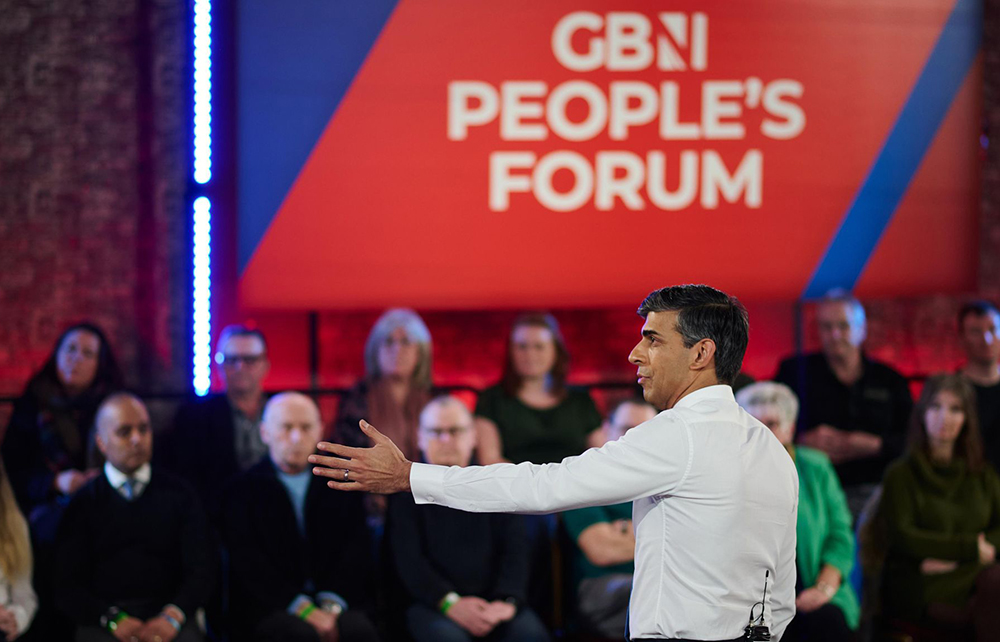I don’t envy the people who run Ofcom. On the one hand, they’re under enormous political pressure to sanction GB News, which, in the eyes of its establishment critics, is a contaminated river of far-right propaganda that’s polluting the ‘delicate and important broadcast ecology of this country’ (Adam Boulton). But on the other, they want to preserve their status as the keepers of the ring and cannot be seen to be holding GB News to a higher standard than other broadcasters. That makes their lives complicated because, in reality, the channel’s politics are far closer to the Telegraph than they are to Fox News, and it’s no more partisan than LBC or Channel 4 News. Indeed, it may actually be less politically biased than those broadcasters, with a recent poll discovering that more GB News viewers intend to vote Labour than Conservative.
Ofcom has enormous latitude when it comes to applying these rules
Until now, Ofcom’s solution to this dilemma has been a typical English fudge in which the regulator appears to take the complaints of left-wing activists about the channel seriously, dutifully ‘investigating’ them over several months, only to conclude that it hasn’t actually breached the Broadcasting Code or – if it has – in such a minor way that it’s only deserving of a wrist-slap. But that changed this week with the announcement that Ofcom is considering whether to impose a ‘statutory sanction’ on GB News, having concluded that People’s Forum: The Prime Minister,in which Rishi Sunak was grilled by a studio audience last February, broke ‘due impartiality’ rules. If it does decide to wheel out the big guns, the channel’s punishment could be anything from a fine to the removal of its broadcast licence.
Why the harsher treatment? Ofcom says it’s because this is the third time the channel has breached ‘due impartiality’ rules, that the rules in question are important (they require broadcasters to give due weight to a wide range of significant views when it comes to matters of major political controversy) and it’s incumbent upon GB News to follow these rules at the moment because we’re in a ‘period preceding a UK general election’. But having looked in detail at the regulator’s case, it’s difficult to avoid the conclusion that the real reason it’s taken the gloves off is because it knows which way the wind is blowing.
Take the last part of Ofcom’s rationale. You could say we’re in a period preceding an election at more or less any time, given that the Fixed Term Parliament Act has been repealed and the Prime Minister can call an election whenever he wants. To argue that broadcasters should have particular regard for ‘due impartiality’ during an actual general election campaign is one thing, but Ofcom is introducing an entirely novel concept to justify its decision.
What about the charge that the programme in question failed to give due weight to a wide range of significant views? GB News had a field day on Monday, pumping out clips of the Prime Minister being hauled over the coals by a studio full of undecided voters. He was skewered on the government’s ‘chronic underfunding’ of social care; the likely failure of its Rwanda policy; the housing shortage; its lack of support for the LGBT community; and its neglect of the vaccine injured. Aha, says Ofcom. But the audience members weren’t given an opportunity to ask follow-up questions, so Sunak ‘had a mostly uncontested platform to promote the policies and performance of his government’.
Having watched the programme, I wouldn’t describe the response to the Prime Minister as ‘uncontested’. Yes, the questioners didn’t get a right of reply, but no sooner had Sunak fielded one fast bowl than another was coming straight for him. The claim that this is a third offence, with the channel having been found guilty twice before of breaching the same rules, might carry more weight if those other offences were serious. But they weren’t, which is why they attracted no penalties. It’s a bit like a magistrate saying to a defendant that because he’s been caught going 23mph in a 20mph zone twice before, he’s now considering sending him to jail for doing so a third time.
The truth is, Ofcom has enormous latitude when it comes to applying these rules, which is why it hasn’t sanctioned LBC for its almost identical Call Keir show. How its executives interpret the ‘due impartiality’ requirements is at their discretion, which means their decisions are unavoidably political. Indeed, this latest ruling is a regulatory version of lawfare – a thinly disguised political attack. Ultimately, it will do more damage to the reputation of Ofcom than GB News.








Comments